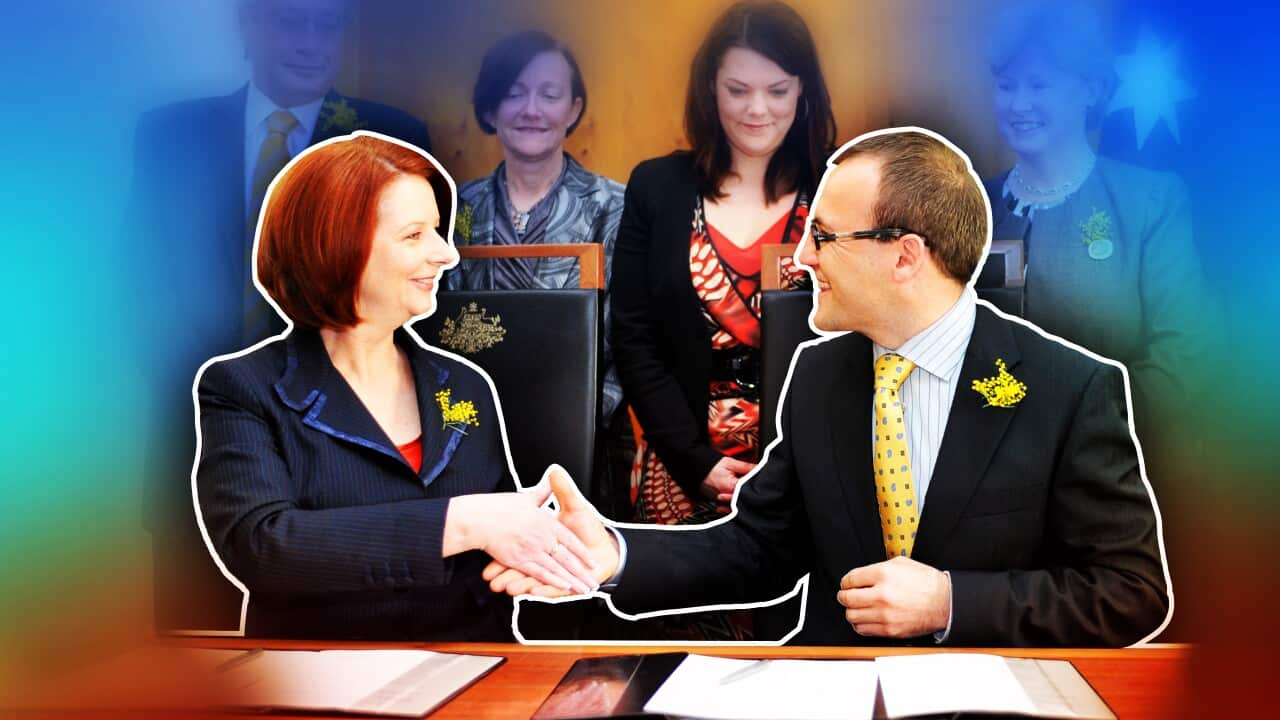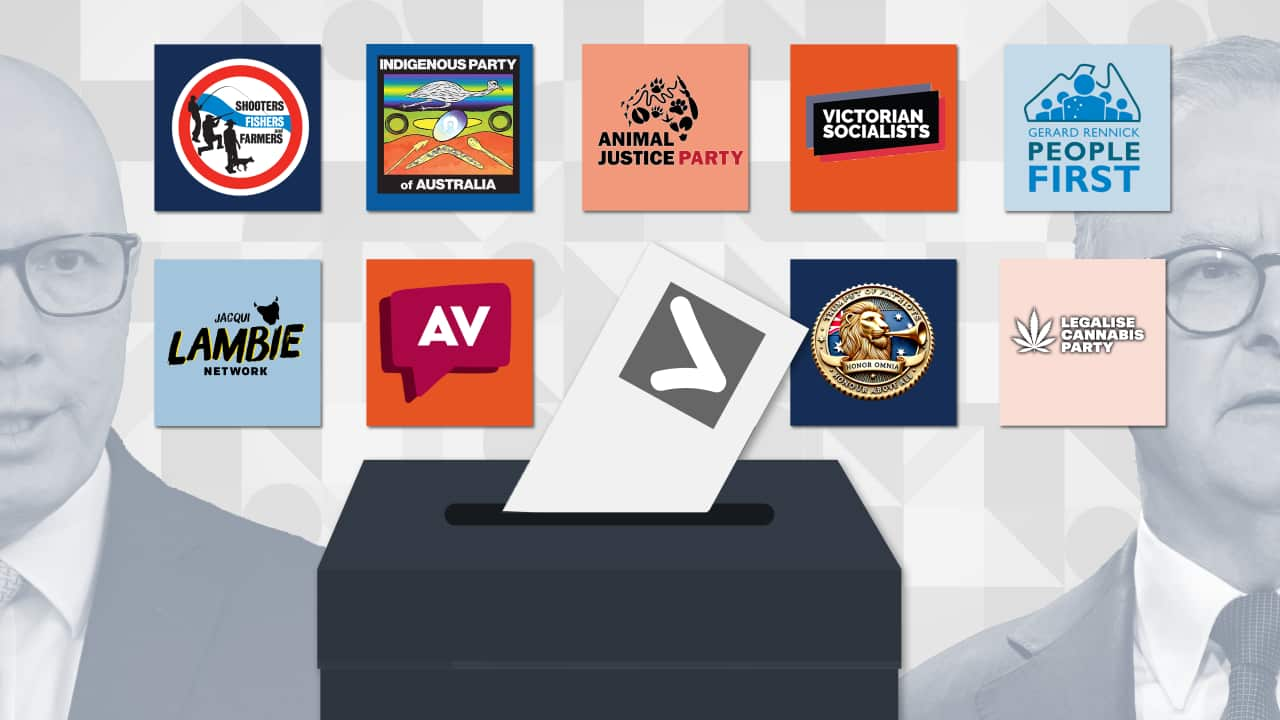There is a possibility that no-one will really win the federal election.
Polls show a minority government or 'hung' parliament is a possibility, which means leaders of the major parties (Labor and the Liberal/National Coalition) will have to gain the support of enough crossbenchers — made up of independents, Greens and members of other minor parties — to form government.
Paul Williams, an associate professor of politics and journalism at Griffith University, said: "We are staring down the barrel of minority government this time."
Graeme Orr, an electoral law expert from The University of Queensland, said as the primary vote of the major parties slipped below 30 per cent, there was a higher chance politicians who were not members of the major parties would be elected.
"I think we have to be more adult about it and accept the fact that not only [will there be] more minority governments in Australia ... we [also] need parties to adjust to this idea of negotiating," he said.

Both parties each got more than 45 per cent of the primary vote in 1984, but these figures are on a downward trend. Source: SBS News
How do you win an election?
The simplest way to form a government is by winning a majority of the seats in the House of Representatives, also known as the lower house.
At this election, 150 seats will be contested and 76 seats will be needed for an outright majority.
But getting fewer seats than this can still lead to a party being in power if it can gain support from enough crossbenchers to reach at least 76 seats.
What does 'supply and confidence' mean?
The lowest form of support that minor parties and independents can offer a government is confidence and supply.
This guarantees they will support the government if a "no confidence" motion is introduced in parliament and will vote for appropriation bills that allow the government to spend money, also known as "supply".
"The one thing that can bring down a government that otherwise has numbers is if it can't get the budget through parliament," Orr said.
He said the MPs would reserve the right to block other legislation they disagreed with.

Neither Labor nor the Coalition got enough seats to reach a majority in 2010. Source: SBS News
How does a minority government change politics?
Under a majority government, negotiations to pass legislation happen mostly in the Senate, but in a minority government, there must also be talks in the lower house to secure support.
"Most people don't like the idea of a hung parliament or a minority government because the first thing you think is uncertainty, unpredictability," Williams said.
Are minority governments rare?
The first three governments in Australia were minority governments in an era before established parties or coalitions.
But before 2010, there had not been a minority government for 70 years.
"We had a minority government partly in the Turnbull area, but also in the Gillard era. It's becoming more common because fewer and fewer people are locked on to voting either Labor or Liberal National," Orr said.
Are minority governments bad?
Minority governments are more frequent around the world, including in New Zealand which elects MPs through proportional representation. Seven out of the last 10 governments there have been a minority.
Richard Shaw, a politics professor from Massey University of New Zealand, said it doesn't cause issues.
"You wouldn't from Australia, look across, at us, and think: 'My God, that mob, they're a model of constitutional instability and political turmoil'," he said.
"You know, stuff just continues to happen.
"No government has lost a confidence vote. No government's lost a budget vote. Governments lose votes on legislation reasonably regularly, but constitutionally, nothing happens. It's rarely a political crisis."
It also allows for more input on proposed laws, Shaw said.
"I think the advantages are that you have more views at the cabinet table, and if they're not at the cabinet table, then they're in ministerial positions outside of cabinet.
"So more variety, I guess, more diversity, more voters seeing their points of view represented in government."



